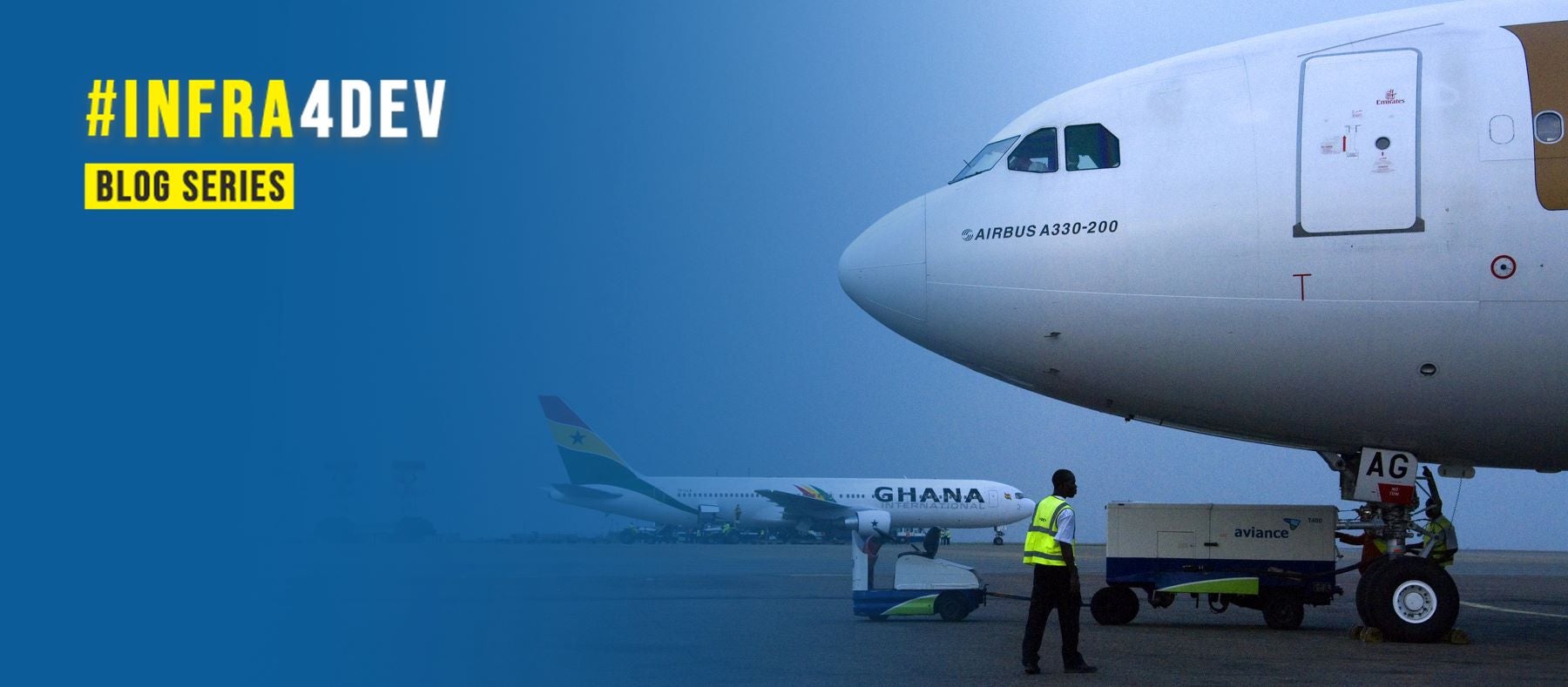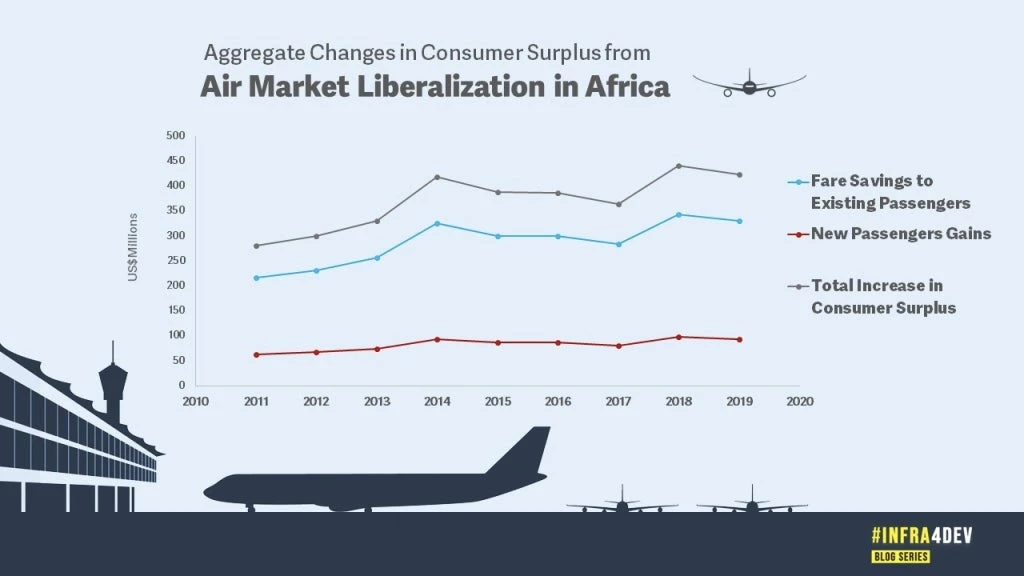 Plane on runway
Plane on runway
Following global trends of air transport market liberalization, African countries set out to liberalize the aviation market across the continent through the Yamoussoukro Decision (YD) in 1999. The YD was adopted out of recognition that the strict market regulations that many countries put in place to protect their national carriers have detrimental effects on air safety records, while inflating air fares and dampening air traffic growth. However, full implementation of the YD and its fast-tracking initiative under the Single African Air Transport Market, remains pending.
How far have we come with implementing air transport liberalization in Africa?
Evidence abounds that air transport market liberalization will lead to substantial benefits in the African aviation sector and its wider economy. The benefits of liberalization extend well beyond the aviation industry, resulting in an overall positive impact on tourism and employment as well as greater trade and deeper engagement in global production value chains.
When I first started working on this subject in 2004, two years after the YD became binding, the overriding concern of many African countries was uncertainties around the economic effects of air transport liberalization. I witnessed this firsthand sitting in many Bilateral Air Service Agreements (BASAs) negotiations. While in principle the YD had liberalized the market, meetings were routinely called to revise provisions on the number of weekly flights and rights to pick-up passengers in a multi-legged flights.
While there has undoubtedly been some progress towards liberalization, after two decades of discussion no African country has yet fully implemented the Yamoussoukro Decision This situation persists despite the clear economic rational and favorable implementation environment in many countries, which have been highlighted in a recent study led by the African Union Commission with support from the World Bank.
What are the economic gains from liberalizing air transport?
To improve our understanding of these issues, a recent research paper from the World Bank Infrastructure Chief Economist’s Office, “Toward a Competitive Air Transport Market in Africa: The Role of Bilateral Air Service Agreements Liberalization” sheds more light on the economic merits of liberalization. The analysis shows that liberalization of BASAs leads to a reduction in airfares and an increase in air travel demand and flight frequency.
The effect of liberalization on air transport markets operates via multiple channels:
-
price reduction
-
increased market competition
-
increased flight frequency
Each of these direct effects has implications for the demand for air travel, which may increase due to both a reduction in prices and an increase in flight frequency. Furthermore, increases in air travel demand have subsequent implications for prices via economies of density, and for flight frequency via economies of scale effects.
After quantifying all the channels through which air transport liberalization can affect air service provision in Africa, we find that liberal BASAs generate consumer benefits that are equivalent to a 40 to 42 percent drop in average airfares. This ad-valorem price equivalent measure of air liberalization amounts to large consumer welfare gains, in the range of US$330.3 million to US$424.4 million (29 to 37 percent of air travel revenues) among the sample countries for 2019, the last year of our study period.

Where should Africa focus in the coming years?
Now that we have ample evidence that liberalization entails positive returns, a focus on integrating fragmented African air transport markets is paramount. It is worth noting that the liberalization of the international air transport market in many parts of the world came about as a natural consequence of deregulated domestic airline markets. The coexistence of a regulated domestic market alongside liberal international policies is one of the main policy dilemmas facing many African countries. This policy duality has stood in the way of an organic transition from domestic deregulation to regional and continental open skies.
To realize the full benefits liberalization brings, policy makers should aim at leveling the playing field for all players and achieve meaningful private sector participation and competition both in the domestic and international markets. This will pave the way for a truly open market, making the BASAs system redundant. Hopefully, we do not have to wait another twenty years for that to happen.
#Infra4Dev is a blog series that showcases recent World Bank economic research to explore how Infrastructure is critical for development. You can access to all the previous Infra4Dev blogs here.


Join the Conversation